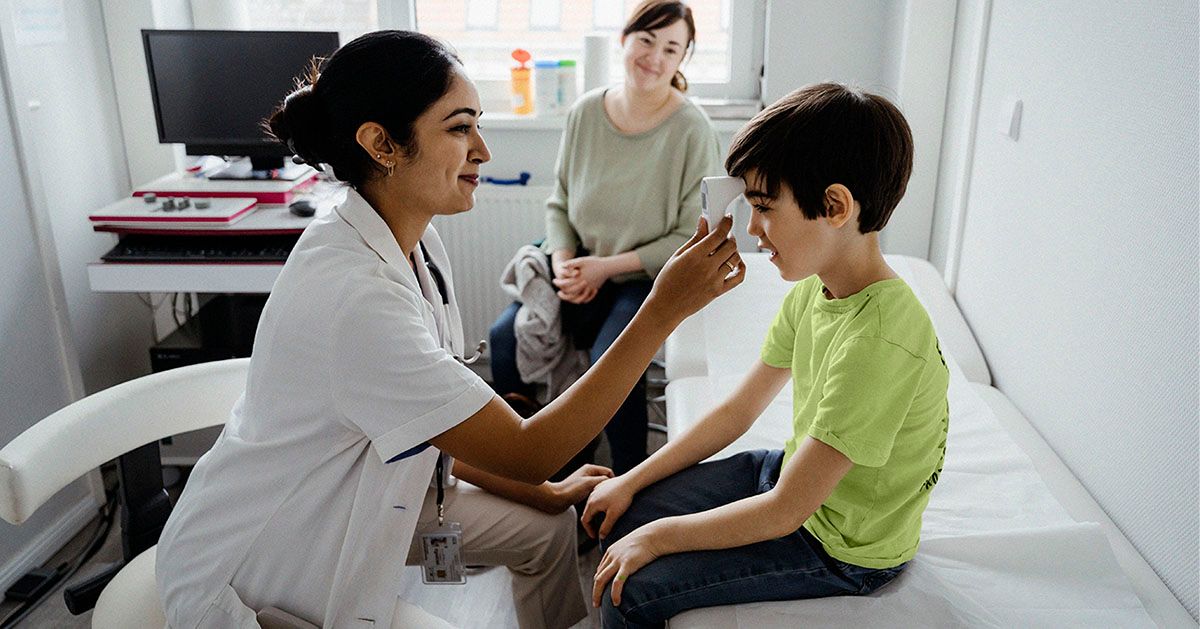Back-to-School Checkups: Get ready for the New Year with a Healthy Visit

Meghan Holland, NP-C with Bayhealth, wants parents to know that one of the most important things they can do to keep their children healthy and successful in the classroom is to schedule an annual well visit. Holland stated, “These aren’t just “back-to-school” checkups.” “Even when a child appears healthy, annual physicals are about checking their growth, development, and emotional health.” A thorough examination from head to toe usually includes screening questions about the patient’s health history, safety, and high-risk behaviors. Pediatricians also check for milestones in growth, look for mental health issues, and make sure that kids are growing normally through puberty. For student-athletes, a Delaware Interscholastic Athletic Association (DIAA) physical is required to play school sports. A separate physical may be required for Special Olympics athletes. In addition, providers check students’ vaccination records to make sure they are up to date on all recommended vaccines.
Screenings That Support Learning
“Vision and hearing are critical for classroom learning,” Holland said. “If a child can’t see the board or hear the teacher, it will affect their ability to keep up.”
Eye exams are included in the general physical exam, and if issues are noted, providers can refer patients to an optometrist. Screenings and subsequent follow-up as required are used to address hearing issues as well.
Mental and Emotional Health Matter Too
Primary care providers use standardized tools during annual exams to help assess a child’s emotional and mental wellbeing. For older children and teens, parents may be asked to step out during part of the visit so the child can speak openly.
According to Holland, “Parents should feel comfortable sharing any physical, emotional, or behavioral changes they have observed.” “Concerns about anxiety, depression or attention issues should be discussed.”
While a physical alone can’t diagnose conditions like ADHD, it can be a starting point. Utilizing instruments like the Vanderbilt Assessment Scale, providers can recommend additional evaluations when necessary.
What Sports Physicals Cover
The DIAA sports physical focuses on issues like family history of cardiac conditions, asthma, previous concussions, and orthopedic injuries that could affect a child’s safety while playing a sport. Before returning to play, athletes who have suffered an injury must obtain medical clearance, Holland emphasized. “Hydration is also key,” she said. “It’s not just water. Student-athletes should replenish electrolytes, especially in the heat.”
When and Where to Schedule
Bayhealth encourages high school students to schedule DIAA physicals after April 1 of the current school year, which can be obtained from their primary care physician or the High School Wellness Center, to ensure that they are valid throughout the upcoming school year. It is best for middle school students to finish their physicals before school starts. Bayhealth offers these services through its seven school-based Wellness Centers in Smyrna, Dover, Caesar Rodney, Lake Forest, Polytech, Milford and Woodbridge high schools. Students who are members can receive care, including sports physicals, vaccines (if eligible) and sick visits.
Bayhealth also offers walk-in and urgent care clinics and hosts special events in the summer where residents provide low-cost sports physicals. Some locations offer $45 physicals that meet school or sports requirements, though availability and eligibility may vary.
Create healthy routines all year long Establishing a relationship with a primary care provider ensures continuity of care for both routine and sick visits. Holland also recommends starting a school routine at least a week before the first day back to help kids transition from summer schedules.
She stated, “Creating structure early helps children adapt more smoothly.” “It sets the tone for a strong start both physically and emotionally.”
